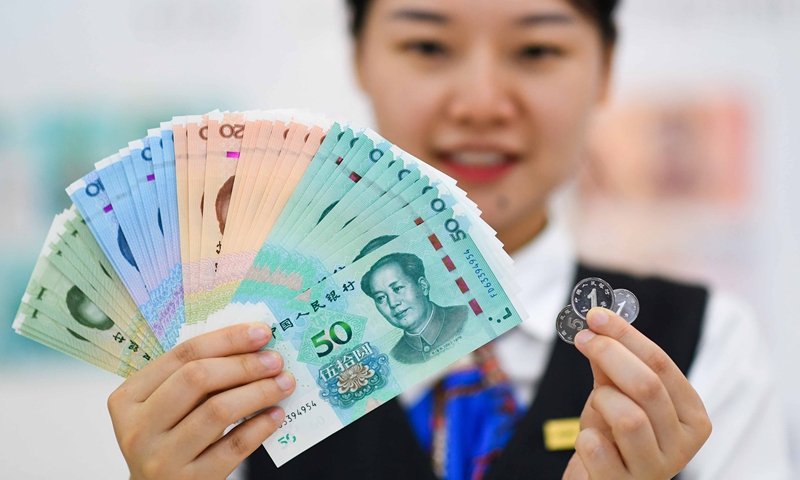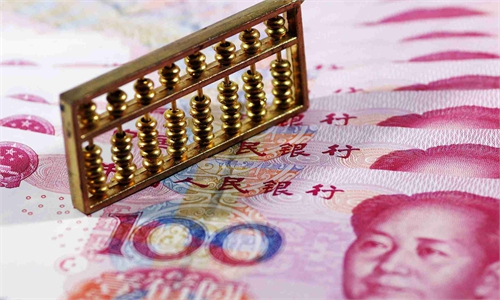
A staff member displays the banknotes and coins included in the 2019 edition of the fifth series of the renminbi at an Industial and Commercial Bank of China (ICBC) branch in Beijing, capital of China, Aug. 30, 2019.(Photo: Xinhua)
The Chinese central bank's new policy of expanding yuan settlements in cross-border e-commerce and other new trading scenarios took effect on Thursday.With more trading entities and individuals being included, it will accelerate the development of new models of foreign trade and boost the yuan's internationalization, Chinese experts said.
China will ramp up efforts to improve yuan settlement-related policies for cross-border e-commerce platforms and other new trading scenarios, expand settlement services from goods and services trade to all sectors under the current account, strengthen supervision over payment institutions, and shore up risk prevention, according to a statement released by the People's Bank of China, the central bank.
In addition to e-commerce platforms, new forms of foreign trade include market procurement, offshore trade and overseas warehouses.
Domestic banks may cooperate with non-bank payment institutions and clearing institutions with legal qualifications to provide cross-border yuan settlements under the current account for trading entities and individuals.
Cross-border yuan settlement services were mainly for commercial entities previously, but the new policy expands the service to more individuals and consumers. Given the rapid growth of cross-border e-commerce and the well-developed online payment platforms in China, it will accelerate the yuan's internationalization, Dong Dengxin, director of the Finance and Securities Institute of the Wuhan University of Science and Technology, told the Global Times on Thursday.
In 2021, cross-border yuan settlements totaled 36.6 trillion yuan ($5.4 trillion), up 29 percent year-on-year, according to data from the central bank. Local banks have also ramped up efforts to serve firms' cross-border businesses. For instance, the Bank of Jilin in Northeast Jilin Province set up a mechanism to offer tailored services for its major clients.
In addition to the yuan's expanded use in the cross-border settlement system, many countries and regions have accelerated foreign exchange reserve diversification or started to set up different payment approaches, other than depending on the US dollar.
For instance, during the just-concluded G20 meeting held in Indonesia, five countries in ASEAN - Malaysia, Indonesia, Thailand, Singapore and the Philippines - decided to connect their payment systems within the year to allow people to buy goods and services throughout the region using their own currencies.
The Indian central bank also said that it "had put in place a mechanism for international trade settlements in Indian rupees with immediate effect," local news outlet the Business Standard reported on July 12.
In terms of population, the number of people using non-dollar payment systems could exceed 4 billion, including those from China, India, ASEAN, Russia and others, media reports said.
The trend of reducing dependence on the US dollar is accelerating in the international community, Dong said.
Global Times


